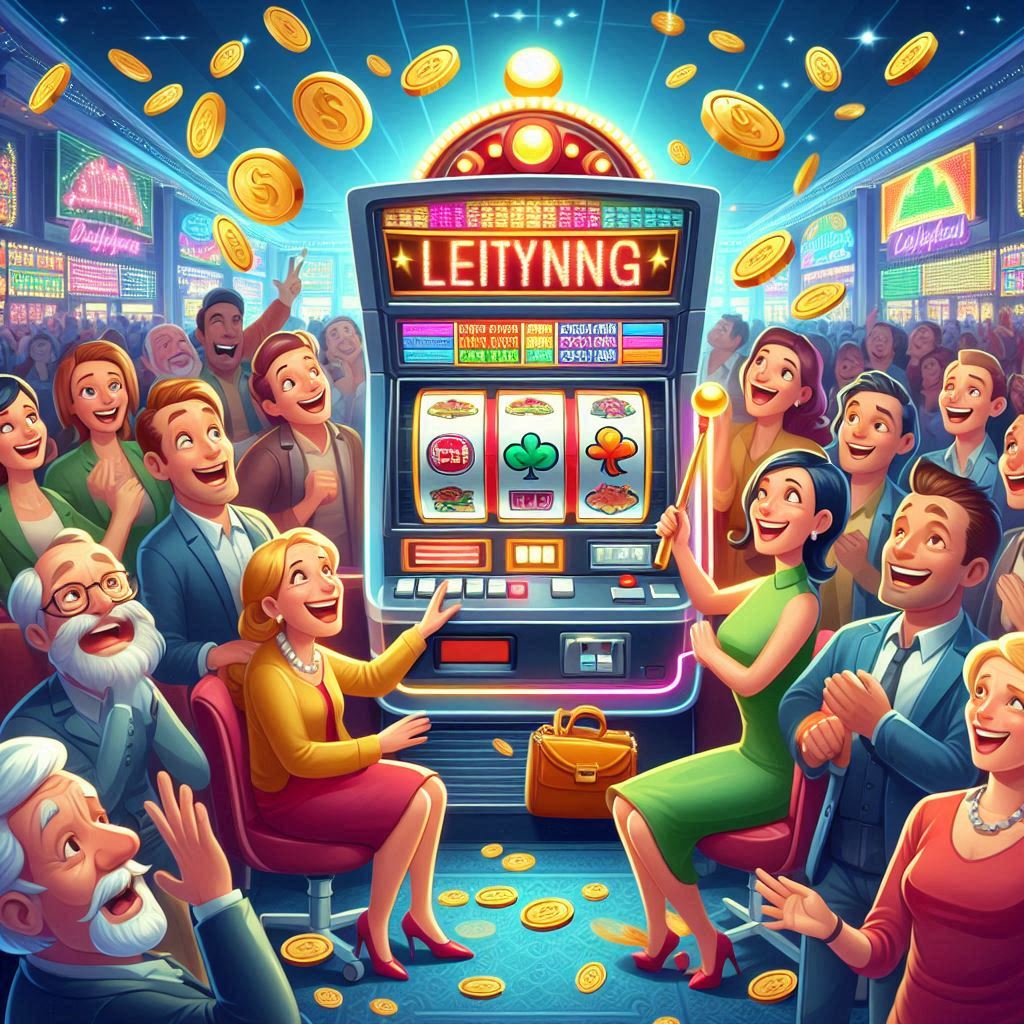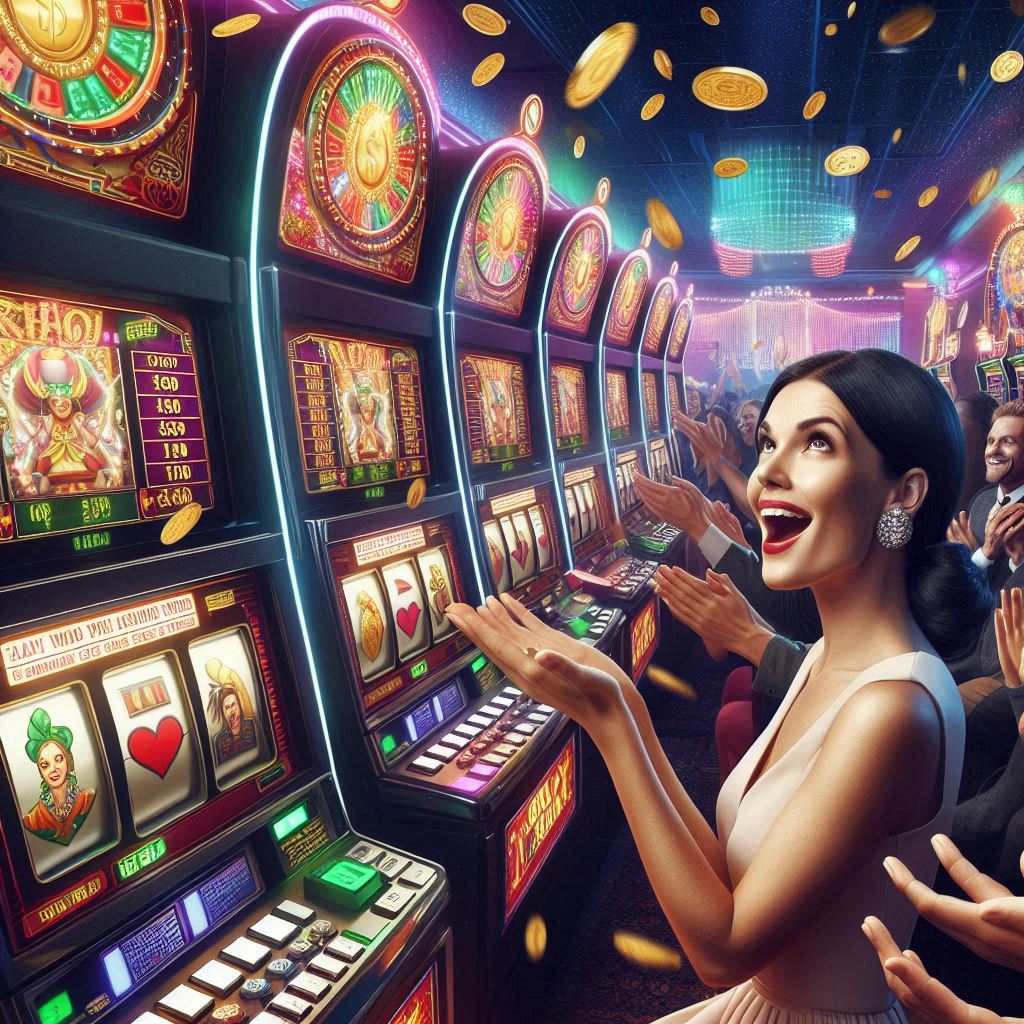
The flashing lights, enticing sounds, and promise of instant riches – slot machines have captivated gamblers for generations. But a nagging question persists: are slot machines rigged? This age-old query has fueled countless debates among casino enthusiasts and skeptics alike. In an industry where fortunes can change with a single spin, understanding the mechanics behind these ubiquitous gaming devices is crucial.
Are casino machines rigged, or do they operate on fair principles? This article delves deep into the world of slots, exploring the technology, regulations, and psychology that govern these popular games of chance. We’ll unravel the myths surrounding casino slot machines, examine the role of Random Number Generators, and shed light on the house edge that keeps casinos profitable. By investigating regulatory oversight, common misconceptions, and the science of probability, we aim to provide a comprehensive answer to the burning question: are slot machines rigged? Prepare to embark on a journey that will transform your understanding of casino gaming and equip you with the knowledge to make informed decisions at the slot machine.
Understanding slot machines
To address the question “are slot machines rigged,” we must first comprehend how these intricate devices operate. Modern slot machines are marvels of technology, far removed from their mechanical ancestors. At their core, they utilize sophisticated computer systems to determine outcomes, ensuring fairness and randomness.
The heart of every slot machine is the Random Number Generator (RNG). This complex algorithm continuously generates thousands of numbers per second, even when the machine is idle. When a player hits the spin button, the RNG instantly selects a random number, which corresponds to a specific combination of symbols on the reels. This process ensures that each spin is independent and unpredictable, debunking the myth that casino machines are rigged.
Another are casino slot machines rigged crucial concept is the Return to Player (RTP) percentage. RTP represents the theoretical amount a slot machine will pay back to players over time. For example, a machine with a 96% RTP is expected to return $96 for every $100 wagered in the long run. However, this is a statistical average and doesn’t guarantee individual session outcomes.
Understanding these mechanisms helps dispel concerns about whether casino slot machines are rigged. While casinos do have a mathematical advantage, the outcomes of individual spins are genuinely random. Regulatory bodies rigorously test and monitor these systems to ensure fair play, maintaining the integrity of the gaming industry and protecting players from rigged machines.
Are slot machines rigged: Regulation and oversight
The question “are casinos rigged” often arises among skeptical players. However, the gambling industry is subject to stringent regulations and oversight to ensure fairness. Gaming commissions and regulatory bodies play a crucial role in maintaining the integrity of casino operations, including slot machines.
These authorities implement strict licensing requirements for casinos. To obtain and maintain a license, operators must adhere to rigorous standards of fairness, transparency, and responsible gaming practices. This process helps address concerns about whether casino games are rigged.
Testing and are casino games rigged auditing processes for slot machines are particularly thorough. Independent testing laboratories, approved by regulatory bodies, conduct extensive evaluations of slot machine software and hardware. These tests include:
- Verification of Random Number Generators (RNGs)
- Analysis of payout percentages
- Examination of game rules and paytables
- Security audits to prevent tampering
Regulatory bodies also conduct regular on-site inspections and require casinos to submit detailed reports on their operations. This ongoing oversight helps ensure that casino slot machines are not rigged and continue to operate fairly over time.
Moreover, many jurisdictions require casinos to publicly display information about slot machine payout percentages, providing transparency to players. This combination of strict licensing, continuous testing, and public disclosure significantly reduces the likelihood of rigged games, fostering trust in the casino industry.
Common misconceptions about slot machines
One of the most persistent myths in the gambling world is the notion of “hot” and “cold” machines. Many players believe are slot machines rigged that slots are rigged to have winning or losing streaks, but this couldn’t be further from the truth. The idea that casino slot machines are rigged to follow patterns is a misconception that can lead to poor decision-making and potentially problematic gambling behavior.

In reality, each spin on a slot machine is an independent event, governed by a Random Number Generator (RNG). This sophisticated system ensures that every outcome is entirely random and unrelated to previous or future spins. The concept of randomness is crucial to understand when asking, “are slots rigged?” The answer is a resounding no – at least not in the way many players believe.
The illusion of patterns in slot results is a psychological phenomenon known as the “gambler’s fallacy.” Players often perceive streaks or patterns where none exist, leading them to make predictions about future outcomes based on past results. For example, after a series of losses, a gambler might believe the machine is “due” for a win. However, this belief has no basis in reality, as the odds remain constant for each spin.
To illustrate this point, consider the following:
- A machine that has just paid out a jackpot is no less likely to pay out again immediately.
- A machine that hasn’t paid out in a while is not “due” for a win.
- The time of day or day of the week does not influence a machine’s payout probability.
Understanding these facts helps dispel the notion that casino slot machines are rigged. While casinos do have a mathematical edge (known as the house edge), this advantage is built into the game’s design through payout ratios and probabilities, not through manipulating outcomes of individual spins.
Are slot machines rigged: House edge and probability
When players ask, “Are casino slots rigged?” they’re often questioning the fairness of these games. In reality, slot machines aren’t rigged in the traditional sense, but they do have a built-in mathematical advantage for the casino, known as the house edge.
The house edge in slot machines is a result of careful programming and probability calculations. Unlike are slot machines rigged table games where the odds are more transparent, slot machines use complex algorithms to determine outcomes. This makes it challenging for players to accurately assess their chances of winning.
For example, a slot machine might be programmed with a 96% Return to Player (RTP) rate. This means that, over time, the machine will pay back 96% of all money wagered, leaving a 4% house edge. However, this is a long-term average and doesn’t guarantee short-term results.
Compared to other casino games, slot machines often have a higher house edge. While games like blackjack can have a house edge as low as 0.5% with optimal play, slots typically range from 2% to 15%. This difference is one reason why some players wonder if casino slot machines are rigged.
It’s important to note that while casino games have varying odds, they all favor the house in the long run. The key difference with slots is the lack of transparency in individual game odds, which can make them seem more mysterious – and potentially unfair – to players.
Debunking the myth: The truth about slot machine fairness and responsible gaming
In addressing the question “Are slot machines rigged?”, we’ve explored the intricate workings of these popular casino games. From the role of Random Number Generators to the stringent regulations governing the industry, it’s clear that properly regulated slot machines are not rigged in the traditional sense. While casinos do maintain a mathematical edge, this is a far cry from manipulating individual game outcomes.
The notion that “are casinos rigged” stems largely from misunderstandings about probability and the nature of randomness. Licensed and regulated casinos operate under strict oversight, ensuring fair play and transparency. However, it’s crucial for players to approach gambling with a realistic understanding of the odds and the inherent house advantage.





